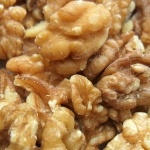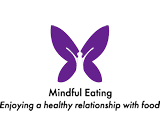Diet Advice Or Just A Diet Myth?
We are often bombarded with diet advice in the media, and sometimes information can be inaccurate, or there can be conflicting messages, leading to confusion. A myth is a widely held but false belief or idea, and if we want to lose weight, and keep it off, we need to have the right information to hand. It can be helpful to be aware of common dieting myths, and to identify and dispel any myths which you might be holding on to yourself, so that they don’t get in your way. The diet advice I give clients often helps to dispel the most common myths, which can get in the way of successful weight control.
Myth: ‘Skipping meals helps weight loss’
 Going long periods without eating will not help weight loss in the long-term. If the body thinks it’s starving it will go into ‘conservation mode’, promoting fat storage, as the body attempts to conserve energy. In this conservation mode the body ‘stalls’- everything slows down and the body burns calories more slowly. Regular eating is therefore important on any weight loss programme. Three meals and one or two snacks is a sensible approach. When giving clients diet advice, I really emphasise the importance of keeping the body ‘topped up’, and avoiding long periods with no food.
Going long periods without eating will not help weight loss in the long-term. If the body thinks it’s starving it will go into ‘conservation mode’, promoting fat storage, as the body attempts to conserve energy. In this conservation mode the body ‘stalls’- everything slows down and the body burns calories more slowly. Regular eating is therefore important on any weight loss programme. Three meals and one or two snacks is a sensible approach. When giving clients diet advice, I really emphasise the importance of keeping the body ‘topped up’, and avoiding long periods with no food.
Myth: ‘I have a slow metabolism’
A larger body has a faster metabolism because it requires more energy to maintain it. An overweight person has more muscle to support a larger frame, and muscle is metabolically active. If you’re overweight but you believe you have a slow metabolism, this can create a sense of helplessness, believing that you’re destined to be overweight, affecting your motivation. A smaller body requires less energy to maintain it, so once you lose weight, you will need less food to maintain your smaller frame. This is why it’s so important not to go back to your old way of eating once you’ve lost weight. Re-educating your eating habits is key! Clients benefit significantly from the diet advice I offer, to ensure they don’t go back to their old eating habits.
Myth: ‘All fat is bad for you’
Over the decades, diet advice has advocated low-fat eating for weight control. Unfortunately, this has had the effect of making people ‘fat phobic’, to the point that think they must avoid all fat if they are trying to lose weight. Omega 3 and 6 are ‘essential’ fats- the body can’t make them, so we must get them from the diet. Essential fats are important for numerous bodily processes including brain function, healthy joints, hormone balance, healthy skin, cardiovascular health, nerve function and immunity. It’s  excess sugar that’s causing the obesity epidemic, not excess dietary fat. A little bit of fat, like protein, keeps you fuller for longer than carbohydrate foods, so fat can actually help you to eat less. It’s therefore incorrect, and detrimental, to avoid fat, and oily fish, nuts, seeds and oils should be included in a healthy diet. It is saturated fats and trans fats that should be kept to a minimum. When I give clients diet advice I also make sure I clarify the facts about dietary fat so that they learn to understand how not all fat is bad, and that certain dietary fat can actually be very beneficial, and in fact important, for body functioning and health whilst they’re trying to lose weight.
excess sugar that’s causing the obesity epidemic, not excess dietary fat. A little bit of fat, like protein, keeps you fuller for longer than carbohydrate foods, so fat can actually help you to eat less. It’s therefore incorrect, and detrimental, to avoid fat, and oily fish, nuts, seeds and oils should be included in a healthy diet. It is saturated fats and trans fats that should be kept to a minimum. When I give clients diet advice I also make sure I clarify the facts about dietary fat so that they learn to understand how not all fat is bad, and that certain dietary fat can actually be very beneficial, and in fact important, for body functioning and health whilst they’re trying to lose weight.
Myth: ‘Lots of weight loss on the scales means lots of fat loss’
If a person restricts their food intake, the body uses its short-term glucose stores (glycogen). Glycogen is made up of 1 part glucose to 3 parts water. Therefore, at the beginning of a weight loss programme there can be significant weight loss comprising more water loss than fat loss, as glycogen stores get used up. As weight loss slows this doesn’t mean that fat loss is slowing, it just means that fat loss is continuing whilst water loss is reducing. And if you have an indulgent weekend, don’t despair- if you notice a sharp increase on the scales, it doesn’t mean you’ve gained back any fat you lost, it means you’ve replenished your glycogen stores- just get back on track as soon as you can.
Myth: ‘A calorie is a calorie’
A key aspect of the diet advice I give to clients relates to the impact of different foods on the body. Foods can vary considerably in terms of their impact on blood sugar levels, which means that some foods keep us feeling fuller for longer, whereas others can make us feel hungry soon afterwards. Our appetite is therefore influenced very much by the type of food we eat- and it’s our appetite we need to keep in check when we’re trying to lose weight. Insulin, which controls blood sugar levels, works as a fat-storage hormone. Our body can go into ‘fat-storage’ mode if we eat fast-releasing (high GI) foods such as white  bread, refined cereals and biscuits, and into ‘fat-burning’ mode if we eat the slower-releasing (low GI) foods such as high fibre whole grain cereals, rye bread, oats, brown rice and pulses (beans, peas, lentils). So when it comes to weight loss it’s not just about the quantity of food, it’s also about the quality.
bread, refined cereals and biscuits, and into ‘fat-burning’ mode if we eat the slower-releasing (low GI) foods such as high fibre whole grain cereals, rye bread, oats, brown rice and pulses (beans, peas, lentils). So when it comes to weight loss it’s not just about the quantity of food, it’s also about the quality.
Myth: ‘All low-fat versions are the better choice’
Common diet advice is to always switch to low-fat or zero-fat options if you are trying to lose weight. Some low-fat products such as cheese and savoury spreads can be helpful as part of a calorie-reducing diet. However, some low-fat or reduced fat products such as yogurt, sauces, soups or snacks may have less fat, but more sugar. This is because sugar is added to make up for the taste lost when fat is removed. Some low-fat products can therefore disrupt blood sugar levels, which means they don’t satisfy the appetite for long and can cause a desire for more food. In contrast, a portion-controlled food containing some fat can satisfy the appetite for longer. A low-fat food is not always a low calorie food either, and just the sugary taste of a low-fat food can cause cravings for more sugar- not what you need when you’re trying to lose weight! As part of the diet advice I give clients, I warn about food marketing, and how products are sometimes labelled in a way that can mislead us into buying a food we think is beneficial to weight loss, when in fact it is not.
If you think you could benefit from some diet advice, give me a call for an initial chat on 07961 423120 or email me at info@mindfuleating.org.uk
I am based in Camberley, Surrey, but I also offer Skype sessions for clients living in other parts of the UK and elsewhere.

